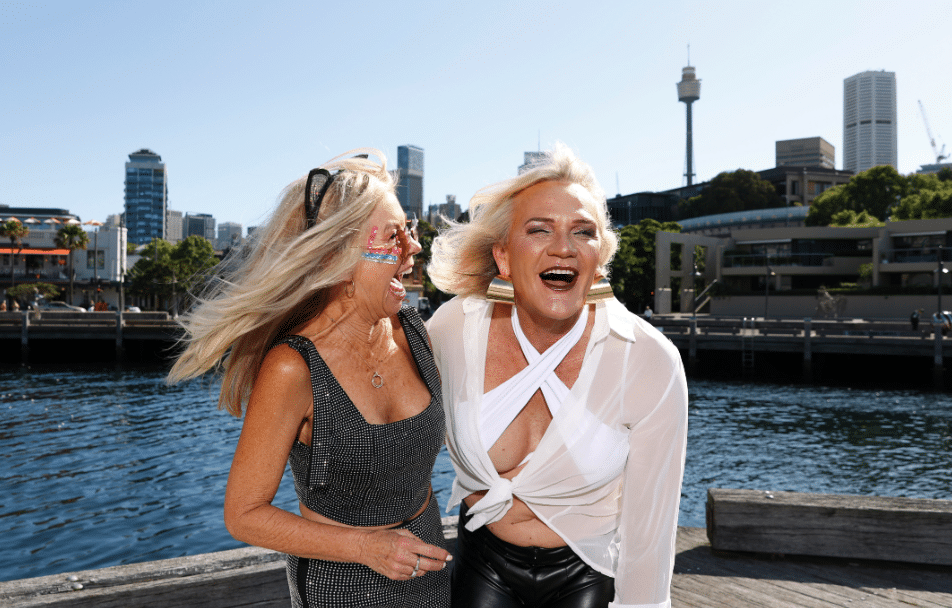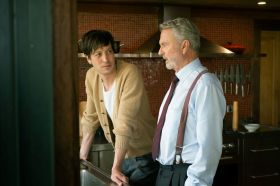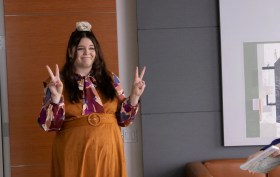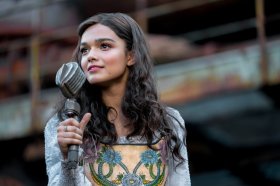Danielle May Laidley is a trailblazing identity in Australia, whose life is as unique as it is inspirational, with this story about to retold through the Jam TV and Stan documentary, Danielle Laidley: Two Tribes.
Speaking with ScreenHub on the eve of its premiere, the former AFL premiership player and coach describes the film as much as ‘an education piece’ as anything else.
‘I hope by watching it, people understand that you can’t do everything by yourself,’ Laidley says. ‘That sometimes you need to be vulnerable and sometimes you need to be able to speak to people that you can trust.’
In reference to the current public and media discourse, Laidley says ‘the talk surrounding our [transgender] community is greater than ever. It’s been from the extremes of good to indifferent to bad.
‘People say this is a fad, it’s not. The numbers are the same – it’s just people are now feeling safe to talk about it. It’s a great thing that it’s being talked about and that people are listening, but it is a slow burn. It’s not going to be for everyone and that’s OK too.’
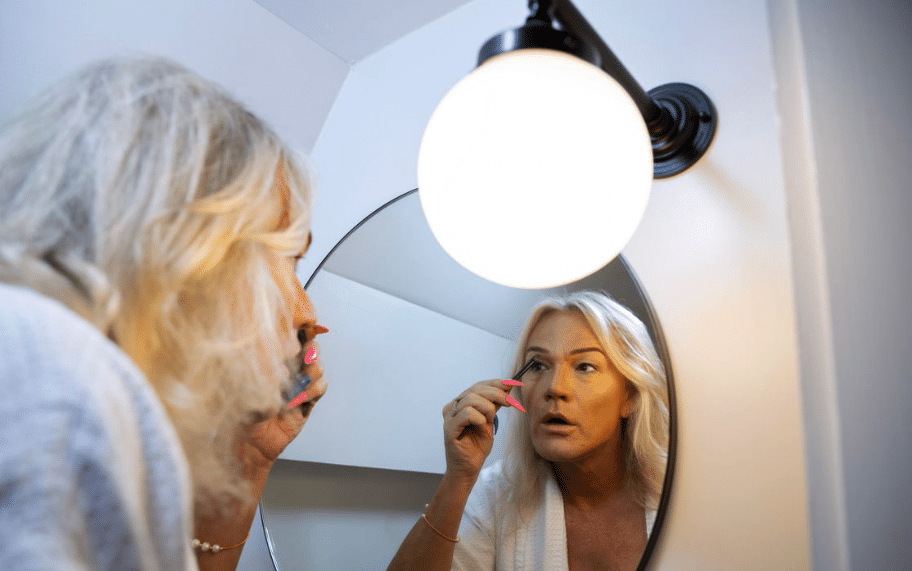
Danielle Laidley. Image: Stan.
Early years
Growing up in Perth, Laidley made her Australian Football League debut with the West Coast Eagles in 1987, before joining North Melbourne in 1993, enjoying a decade-long playing career.
‘Initially family life had some issues,’ she recalls. ‘Mum and dad split up when I was quite young. I would live with my nanna and pop at times and was shuffled around a bit.
‘That made me withdrawn – I was and still am quite introverted and quiet. There was an intensity around my personality and not allowing people to get close.’
Read: What to stream in September 2023: new shows and films in Australia
In Two Tribes, Laidley remembers that, as a child, she had painted her nails with nail polish only to quickly scrub it off and get rid of the bottle. This moment was pivotal to one day understanding and living as her true self.
‘Obviously having thoughts and feelings that I now know as gender dysphoria was all encompassing,’ she says. ‘But back in the 70s and early 80s there was no research, no reading material you could go and explore.’
When asked how having the recourses available back then might have changed things, Laidley thinks they might not have.
‘I had children very young,’ she says. ‘Feeling the way I was, and coming from a broken family, there was no way I was going to let my children experience that. We created a loving family environment and if preserving that meant I needed to be patient with my life, that was first and foremost for me.
‘I suppose that eventually my sporting career took over in an attempt to balance out my life to some degree.’
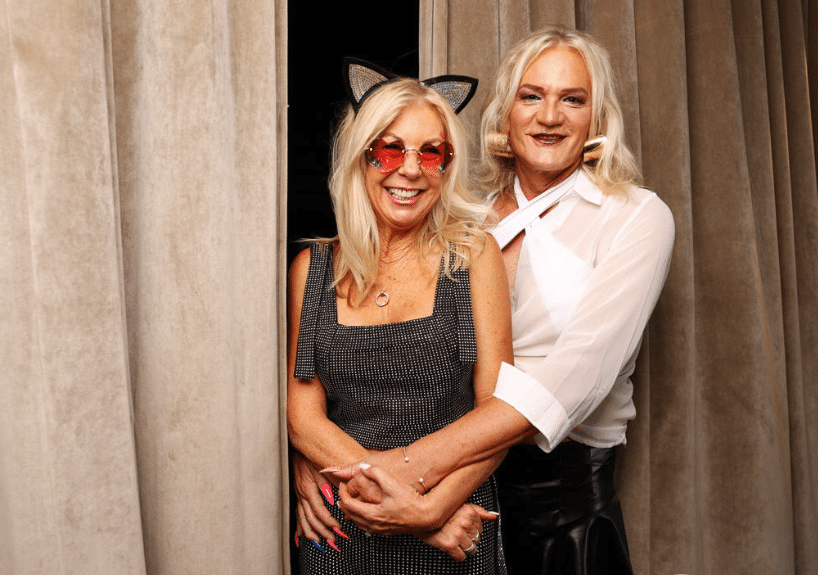
Danielle Laidley. Image: Stan.
Dysphoria
Speaking of her childhood, a stage of life she also covers in her 2022 memoir Don’t Look Away, Laidley sees her younger self now much more clearly than she could at the time.
‘After years of peeling back the layers I can now identify as little Danielle,’ she says. ‘During those earlier years, at times she would be roaring. Or she would be peaking and seeking attention even though I didn’t know what those feeling actually meant.
‘It is very similar to a roar of the grand finale. At times during the game the crowd is at fever pitch. At other times during the game, they really drop off, waiting for the next great thing to happen before the crowd starts to really roar again.’
Taking a deep breath, she says ‘that analogy is really truthful to my experience’.
Following her career as a football player, Laidley made her debut as a National AFL coach with Collingwood in 2002, before signing on as coach of North Melbourne the following year, eventually coaching some 149 games for the club. As Two Tribes details, across the next six years Laidley enjoyed tenure in coaching positions for Port Adelaide, St Kilda and Carlton.
Read: Australian books adapted into TV shows: ones to watch
But her accomplishments on the sporting field would soon be overshadowed by the actions of Victoria Police. Following Laidley’s arrest in May 2020 by St Kilda Police, images of her in custody were leaked by officers, outing her publicly as transgender.
The failings of Victoria Police were unfortunately only further amplified by the actions of the media. Not shying away from these darker moments, Two Tribes shines a light on what she describes ‘as some the lowest moments’ in her life.

Danielle Laidley. Image: Stan.
Forgiveness
But in retrospect and with time, the biggest lesson that Laidley has learnt is that of forgiveness.
‘It’s over three years since that happened.’ As time goes on, you never ever forget, but there is a time to forgive and move on. In life, if we drink other people’s poison or keep looking in the rear-view mirror, we will keep crashing.’
It’s this graciousness and poise that strikes you when speaking with Laidley or indeed watching Two Tribes. Returning her attention to those fateful days in 2020, she explains that ‘when my story became so public, we had no control over the narrative’.
‘There were lot of untruths and innuendo spoken by the media. The public would form their views on myself, or the trans community based on what they read, so when we initially sat down with Jam TV and Stan, we said that if we are going to do this, it would be in such a way that puts everything out there.’
The documentary was co-written and directed by the Emmy Award winning Julie Kalceff, whose previous series, First Day, was the first Australian series to star a transgender actor in a lead role.
Representation
Speaking with ScreenHub, Kalceff says of First Day that, at the time, her niece was six and had just started her transition. ‘I thought it would be really good for her and her family to see a story about a trans girl.
‘Off the back of making First Day, Jam TV reached out to me do this documentary. I said I wasn’t the right person, that it needed to be a trans director to tell this story, but they kept pushing back. Eventually I said: well, what if I found a director who is trans, and we work on this together?’
Enter Sam Matthews, whose breakthrough web series, Unboxed, profiled gender diverse Australian artists and premiered in 2018 on ABC iview.
‘Sam had worked a lot on short form doco, and I think our skillset really complemented each other and together we were able to tell this story,’ Kalceff says.
‘Danielle has had a very interesting life. The first thing we did was sit down and work out what the main areas of her story were and the different ways we could fashion them to create and maintain conflict.
‘When making documentary if there is no dramatic through-line you end up losing the audience. Danielle is incredibly courageous to put herself out there and to tell her story, but it’s so important.
‘I’ve seen the impact that representation has first through First Day and now through Two Tribes. The power of screen stories is that we can really connect with an audience, they have the safety of the screen between them, but they are emotionally engaging with people.
‘It opens their heart, and they take that with them into real life.’
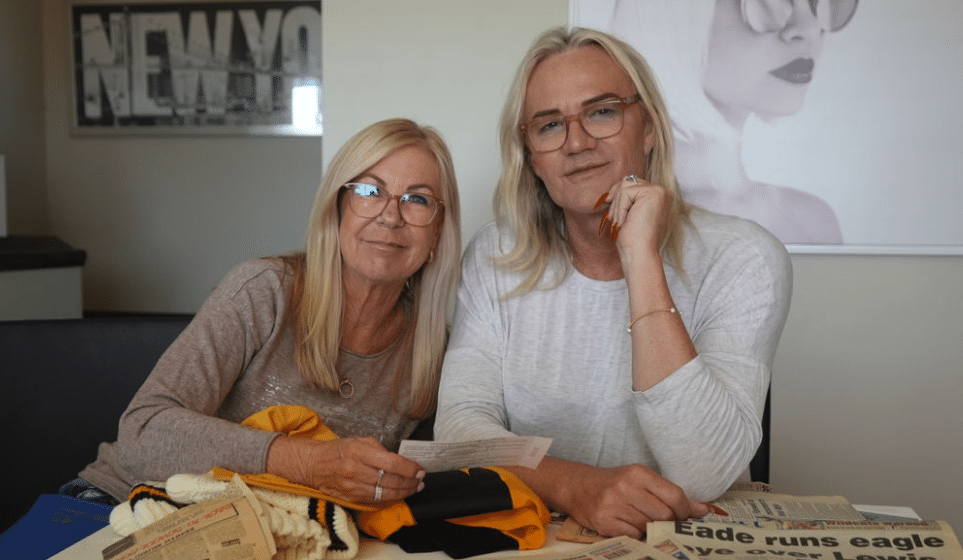
Donna Leckie and Danielle Laidley. Image: Stan.
Enjoying life
Of course, both Kalceff and Laidley know there will still be those who target people within the transgender community.
In 2022, after Laidley and her partner Donna Leckie attended the Brownlow Awards, she once again found herself the subject for intense vitriol and attacks.
‘It was very special to go as myself with Donna and be treated so beautifully,’ Laidley says. ‘Being accepted by everyone in the room was quite amazing and It’s a pity that the population at large couldn’t see that.
‘There were a lot of nasty comments online about why we were there. I do wonder why people are like that, why they go out of their way to be so nasty – I don’t get it.
‘If they were respectful, they would get the same respect back. If people ask respectful questions, I am happy to have a chat. If that leaves them leaving that conversation saying, “you know what, I get it now, I realise what people go through”, that’s fantastic.
‘One person can’t change the world, and to be honest I don’t intend to. I just want to live my life and enjoy what I do. If by that example I can spread support and education I think that’s a great thing.’
Danielle Laidley: Two Tribes premieres on Stan on 19 September.
